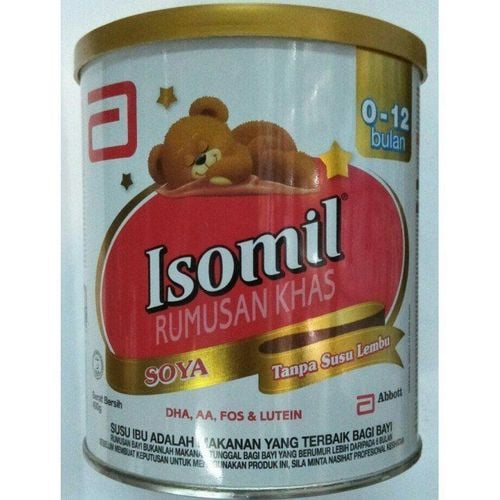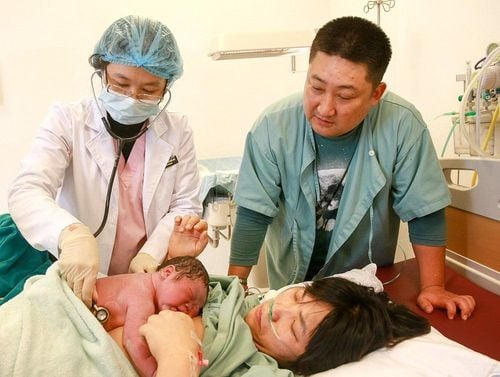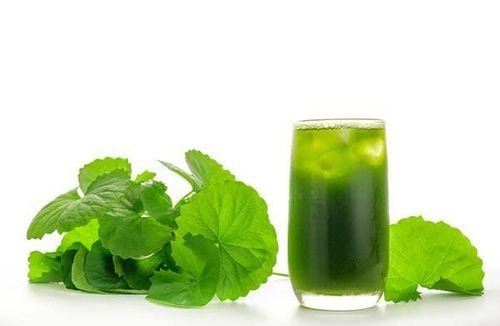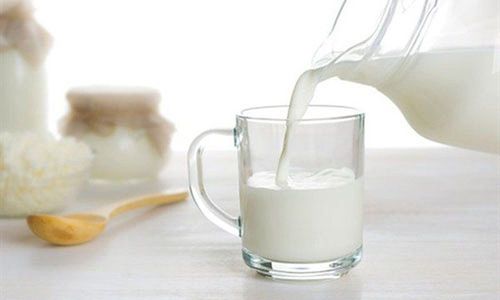This is an automatically translated article.
The article was consulted with MSc Duong Van Sy - Department of Pediatrics - Neonatology, Vinmec Hai Phong International General Hospital.Breast milk is the best food for babies and young children, but some mothers do not have milk, so mothers need to know how to feed their babies so that their babies can develop normally.
1. Solutions for raising children when there is no mother's milk
Breast milk is the best food for babies and young children. Babies need to be exclusively breastfed for at least the first 6 months. However, some mothers are unable to breastfeed their babies, such as: mothers with HIV/AIDS, advanced tuberculosis, bilateral breast abscesses, taking certain medications, etc. without breast milk include:Breastfeeding from another mother, find out if the mother has any disease Using formula In the context of our country: cow's milk is the most convenient solution.
Compare the nutritional content of cow's milk and breast milk

Cow's milk products
Pasteurized fresh cow's milk: take the cow's milk, heat it to 71 degrees Celsius, then cool it down quickly to get milk. pasteurized fresh beef. This milk is quite difficult to digest because the nutritional composition of cow's milk has not been adjusted to be close to breast milk, the protein content is still high, the casein is high, and the Whey/casein ratio is low. This milk is susceptible to infection before feeding and must be boiled again... Therefore, pasteurized fresh milk is not a good choice for babies. Powdered milk, formula milk: Let fresh cow's milk evaporate when passing through a hot tube or mist fresh milk in a stream of hot dry air, the CASEIN protein component will be partially destroyed, so this milk is easier to digest than milk. Fresh cows, however, milk powder lacks a number of substances such as vitamins C, D compared to breast milk. On the basis of this formula, manufacturers will add a number of substances so that the formula has the closest composition to breast milk, which is the formula that mothers often use.
Depending on age, there is formula 1, 2nd formula, 3rd formula. respectively used for children under 6 months, 6-12 months and after 1 year old.
Formula 1 for babies under 6 months has a total sugar composition of lactose, the protein ratio is reduced to close to breast milk, low salt, the ratio of whey/casein protein is similar to breast milk (6/4), with additional essential fatty acids, iron, vitamins, calcium/phosphorus ratio similar to breast milk. Milk for babies over 6 months is richer in protein, iron, calcium and salt than formula 1.
2. Which brands of milk and milk are good?
There are many famous milk brands in the world that mothers can choose: abbott, meiji, nestle... There is no universal formula for milk for all babies, in general, all milk companies try to make their milk real. Similar to breast milk, and which milk suits the baby, you have to try it to know.Some types of milk for special subjects such as:
2.1 Milk for children allergic to cow's milk protein - Recommended type of milk:
+ Fully hydrolyzed milk is indicated for suspected allergy cases or mild to moderate milk protein allergy. Does not cause allergic reactions in 90% of children with cow's milk protein allergy.
+ Amino acid milk is the best food for children with cow's milk protein allergy, indicated for IgE-mediated milk allergies with high risk of anaphylaxis but not available in many countries (including Vietnam) and the price is still high. May cause allergies in less than 10% of children allergic to cow's milk protein but may be higher in children with multiple food allergies.
+ Soy milk is well tolerated in milk-allergic children, but about 10-14% of children have allergic manifestations to soy milk, the rate is higher in the group of children under 6 months of age. Using soy milk can lead to malabsorption of vitamins and minerals due to the high content of phytates and isoflavones in soy milk.
- Use time at least 6 months and re-evaluate then for children under 12 months old and every 6-12 months for children over 12 months old. Babies need to be reevaluated periodically so that formula can be reintroduced.

2.3 Milk for children with diarrhea Especially children with persistent diarrhea (over 2 weeks) or children with lactose intolerance. Choose milk that has been separated into the lactose. This milk usually has a lactose free tail, for example enfalac lactofree, the above actively hydrolyzed protein milk can also be used for children with diarrhea. Use only when sick, recover from illness, use regular milk, except for children with lactose intolerance
2.4 Milk for children with gastroesophageal reflux for spit up, Modilac AR, frisolac comfort, Physiolac AR.....
2.5 Constipated milk These milks have added fiber (prebiotics), probiotics, eg: Modilac transit, frisolac comfort.... Note: Constipation can be caused by a milk allergy, by drinking too much fresh milk, by bowel habits, and by unreasonable eating. Milk cannot replace other treatments. See your doctor first for a comprehensive solution to your constipation.
2.6 Pediasure high-energy milk is for children over 1 year old who eat less and grow slowly. Note that you should not drink too much, the child will be more anorexic. Should only 1 drink in the evening, the maximum in my opinion should only be 2 cups. Because the baby gets a lot of energy through milk, the baby will not be hungry and refuse to eat.
3. How much breast feeding is enough?
There is no universal number for all children. Because tolerability, absorption is different. In general, the first month of life, the baby can feed up to 150 ml/kg/day divided into 8-10 feedings. If the baby sucks 15ml/kg/time, his stomach is mesmerized (2/3), if he sucks 20ml/kg/time, the stomach is distended.In general, if you want to know if your baby is getting enough milk, you have to look at:
Growth (on average, in the first 4 months, babies gain 1 kg per month, head circumference and length both increase rapidly) Children have regular bowel movements, change diapers often often. The milestones of motor development: knowing how to turn, sitting, communicating with parents normally means that the baby is getting enough milk. Currently, the dairy market is extremely diverse and rich, changing every day. Mothers need to carefully read the information on the milk carton before buying.
4. Some things to avoid
Some things to avoid when breastfeeding a child without breast milk:Drink diluted porridge, eat powder before 4 months: the digestive system of children under 4 months cannot digest this food, so the child will have digestive disorders digestion and malnutrition Feeding with sweetened condensed milk such as old man's milk... children will have digestive disorders, not suitable for children under 6 months of age. After the first month of life, the baby should not be woken up for night feeding, so let the child sleep continuously from 10 pm to 2 pm the next day so that the child will be tall and smart.

There are many ways to feed a baby without breast milk. Nowadays, there are many different types of milk on the market. Therefore, mothers need to pay attention and choose carefully, read the information on the box before buying, especially need to understand their children to choose the right type of milk.
As a key area of Vinmec Health system, Pediatrics Department always brings satisfaction to customers and is highly appreciated by industry experts with:
Gathering a team of top doctors and nurses in Pediatrics : consists of leading experts with high professional qualifications (professors, associate professors, doctorates, masters), experienced, worked at major hospitals such as Bach Mai, 108.. Doctors All doctors are well-trained, professional, conscientious, knowledgeable about young psychology. In addition to domestic pediatric specialists, the Department of Pediatrics also has the participation of foreign experts (Japan, Singapore, Australia, USA) who are always pioneers in applying the latest and most effective treatment regimens. . Comprehensive services: In the field of Pediatrics, Vinmec provides a series of continuous medical examination and treatment services from Newborn to Pediatric and Vaccine,... according to international standards to help parents take care of their baby's health from birth to childhood. from birth to adulthood Specialized techniques: Vinmec has successfully deployed many specialized techniques to make the treatment of difficult diseases in Pediatrics more effective: neurosurgery - skull surgery, stem cell transplantation. blood in cancer treatment. Professional care: In addition to understanding children's psychology, Vinmec also pays special attention to the children's play space, helping them to have fun and get used to the hospital's environment, cooperate in treatment, improve the efficiency of medical treatment.
Please dial HOTLINE for more information or register for an appointment HERE. Download MyVinmec app to make appointments faster and to manage your bookings easily.














